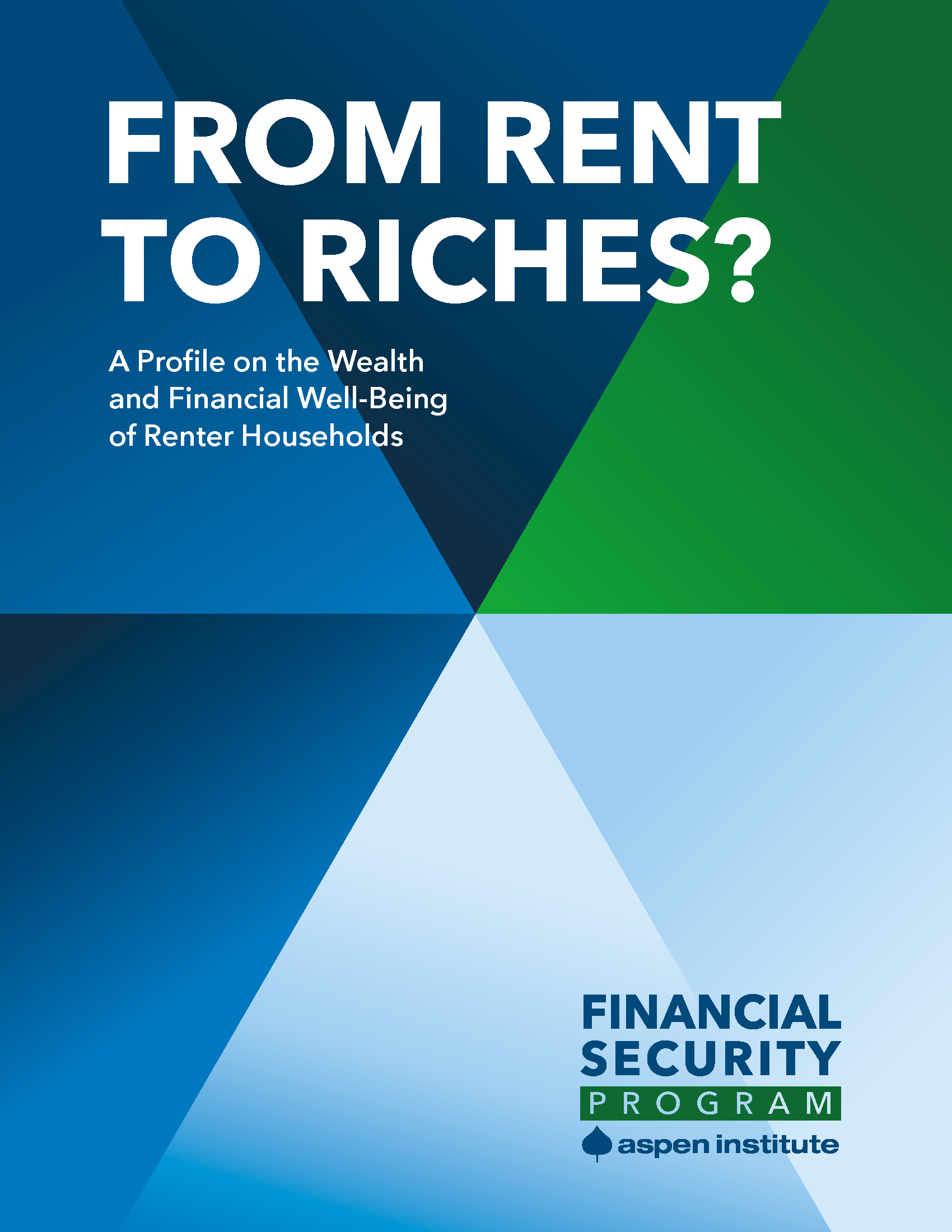There’s a significant opportunity to close the racial and gender wealth gap by providing inclusive access to investing in financial markets. This enormous driver of wealth-creation in America is leaving out the people who could most benefit from it. Across the board, Black and Latinx individuals are less likely to own virtually every kind of financial asset class, invest less in the stock market, and face greater pressures to withdraw funds prematurely. The structural barriers to participation for people of color include a lack of resources to invest, products and processes that aren’t designed with this population in mind, limited direct connections to successful investors and investing role models and an environment of enduring, structural racism. As a result, many people of color and women – especially women of color – have been left behind leading to lower rates of participation in the stock and other capital markets.
Of the solutions – broadening investor racial/ethnic and gender representation, expanding access to investors of color, innovating products and distribution models, and policies that directly address income inequality – which are the priorities? And what role does knowledge – financial literacy – really play in the investment wealth gap?
The newly-published report, “A Framework for Inclusive Investing: Driving Stock Market Participation to Close the Wealth Gap for Women of Color,” traces the drivers of racial and gender wealth gaps in stock market investing and offers recommendations for beginning to address inequities. Policymakers, corporate leaders, fintech firms, and companies offering benefits all have a role to play.
Attendees of the event will learn about:
- The drivers of disparate access to equity investment opportunities
- The roles that leaders can play in promoting more equitable and inclusive wealth-creation by increasing women of color’s participation in investment markets
- The opportunities for addressing systemic barriers to wealth-building, including the role of product innovation, investor education, public dialog and complementary policies to attack inequity
Join the Aspen Institute Financial Security Program, Commonwealth, and the Nasdaq Foundation on July 21 for a conversation with leaders innovating on equity investment.
Registrants for the event will receive the research report in advance of the event.
This event is supported by the NASDAQ Foundation.
Speakers
 Andrei Cherny, CEO & Co-Founder, Aspiration
Andrei Cherny, CEO & Co-Founder, Aspiration
Andrei Cherny is CEO of Aspiration, a financial partner that puts its customers, their conscience, and the planet first. Aspiration offers top-rated, sustainable, socially-conscious, fossil fuel-free banking and investing accounts, trusts its customers to Pay What Is Fair, and gives ten percent of its profits to charity.
Andrei has worked for nearly twenty years to make the financial system more open and fair. He has been an advisor to Fortune 100 companies including some of America’s largest financial institutions, a senior fellow at Harvard’s John F. Kennedy School of Government and at the Center for American Progress, a Navy reserve officer, and a financial fraud prosecutor. A former White House aide, President Clinton called Andrei a “critical part of the team” which brought about the economic successes of the 1990s. As the co-founder and president of Democracy journal, Andrei helped launch the fight for what became the Consumer Financial Protection Bureau.
His 2000 book, “The Next Deal,” outlined how technology was transforming the expectations of consumers and citizens. He is also the author of the bestselling, “The Candy Bombers” about the occupation of Germany and the beginning of the Cold War. He graduated from Harvard University and from the University of California Berkeley law school.
 Jotaka Eaddy, Founder & CEO, Full Circle Strategies
Jotaka Eaddy, Founder & CEO, Full Circle Strategies
Jotaka L. Eaddy is the Founder & CEO of Full Circle Strategies- a social impact and political consulting firm.
As the founder and CEO of Full Circle Strategies, Jotaka delivers more than 20 years of experience in policy, organizing, and movement building to our clients. A seasoned strategist, she has been described as the “Olivia Pope of Silicon Valley” by Forbes Magazine.
Jotaka is also the founder and Convenor of #winwithblackwomen – an intersectional and international network of Black women leaders. The hashtag has garnered more than 600 million impressions and the network has been credited with making a significant impact in the nomination and election of Vice President Kamala Harris as the first Black woman Vice President of the United States.
Jotaka served as the Senior Advisor to the President and CEO and Senior Director for Voting Rights for the NAACP from 2009-2014. During which time she directed external affairs and strategic initiatives on behalf of the Office of the President and CEO. She also led the NAACP’s strategy to defend and expand voting rights.
From 2014-2019 Jotaka served as an executive in Silicon Valley – serving on the executive management team at high-growth tech companies and continues to advise high-growth tech companies
Jotaka’s experience in igniting regulatory, legislative, and social impact initiatives at the federal and state level for leading nonprofits, Presidential campaigns, and within the C-Suite of leading technology companies, has served to bridge the gap between Washington D.C., Underestimated communities, Silicon Valley and beyond.
She has seeded partnerships that have resulted in education, policy, and social impact initiatives that have reached more than 3 million consumers within the tech industry and beyond.
In 2004, Jotaka directed the national lobby and international advocacy campaign against the juvenile death penalty in the United States. Those efforts contributed to the 2005 landmark US Supreme Court decision Roper v. Simmons which abolished the juvenile death penalty in the United States.
Jotaka is a graduate of the University of South Carolina, where she elected Student Body President, becoming the first black woman to be elected to the position in the University of South Carolina’s 213-year history and the first black woman elected to such a position in the state of South Carolina.
She is an active member of several boards and civic organizations including being a proud member of the Federal City Alumnae Chapter of Delta Sigma Theta Sorority Inc.

Timothy Flacke, Executive Director, Commonwealth
Timothy Flacke is Executive Director of Commonwealth (formerly D2D Fund), a mission-driven organization that builds solutions to make people financially secure. Tim helped launch D2D in 2001 and has served on the organization’s board of directors since that time, drawing on twenty-five years’ experience in the non-profit and private sectors helping working people to build savings. Under his leadership, D2D has grown from a start-up social venture into Commonwealth, a nationally recognized innovation incubator which partners with leading financial service firms and receives support from the world’s most respected philanthropic foundations. Tim speaks widely and comments in the media about Commonwealth’s work, the need for broader financial security, and the role of fintech and innovation in addressing this need. He has directed signature Commonwealth efforts including the Refunds to Assets project, linking federal tax refunds to savings, and Online IDA, a scalable infrastructure for matched savings programs built on industry-leading 401(k) recordkeeping technology. These and other efforts have thrice impacted the federal tax code and spawned new financial products and public policies responsible for helping hundreds of thousands of Americans to build hundreds of millions of dollars in savings. Before Commonwealth, Tim worked as an independent consultant, author and grant writer in the field of financial empowerment and asset development. He served as a VISTA volunteer in rural Vermont, and earlier in his career, held leadership positions in corporate human resources and risk management for Filene’s Basement, Inc. He holds a Masters in Public Policy from the Kennedy School of Government at Harvard University and a Bachelor of Arts in Philosophy from Boston College.

Jailan Griffiths, Vice President and Head of the Purpose Initiative, Nasdaq; President, Nasdaq Foundation
Jailan Griffiths is Vice President and Head of the Purpose Initiative at Nasdaq. In this role, Jailan is responsible for the company’s philanthropic, community outreach, corporate sustainability and employee volunteerism programs. Jailan also serves as President of the Nasdaq Foundation and leads its mission to reimagine investor engagement to equip economically disadvantaged communities with financial knowledge and to increase capital markets participation for minority and female entrepreneurs. She is also a member of the board of the Nasdaq Entrepreneurial Center in San Francisco.
Prior to joining Nasdaq in 2016, Jailan worked at Dow Jones, serving as head of marketing for The Wall Street Journal, and head of marketing for Dow Jones Enterprise products including Factiva, Newswires, VentureSource, and Risk and Compliance. She previously worked at Thomson Financial. Jailan holds a Master of Arts (Hons) in History from The University of Edinburgh.
 The Honorable Fiona Ma, CPA, California State Treasurer
The Honorable Fiona Ma, CPA, California State Treasurer
Fiona Ma is California’s 34th State Treasurer. She was elected on November 6, 2018 with more votes (7,825,587) than any other candidate for treasurer in the state’s history. She is the first woman of color and the first woman Certified Public Accountant (CPA) elected to the position.
The State Treasurer’s Office was created in the California Constitution in 1849. It provides financing for schools, roads, housing, recycling and waste management, hospitals, public facilities, and other crucial infrastructure projects that better the lives of residents.
California is the world’s fifth-largest economy and Treasurer Ma is the state’s primary banker. Her office processes more than $2 trillion in payments within a typical year. She provides transparency and oversight for the government’s investment portfolio and accounts, as well as for the state’s surplus funds. Treasurer Ma also oversees an investment portfolio of more than $153.4 billion, approximately $36.6 billion of which are local government funds. She is responsible for $93 billion in outstanding general obligation and lease revenue bonds of the state.
 Ritta McLaughlin, Director of Investor Education, Community Outreach, FINRA Investor Education Foundation
Ritta McLaughlin, Director of Investor Education, Community Outreach, FINRA Investor Education Foundation
Ms. McLaughlin is the director of investor education community outreach at the Financial Industry Regulatory Authority (FINRA) Investor Education Foundation. In this capacity, she serves as an expert on various personal finance and investor education topics, emphasizing communities of diverse cultures and socio-economic backgrounds. Ms. McLaughlin is responsible for cultivating and managing strategic partnerships with national and local organizations to enable and deliver innovative financial capability programming and foster engagement with diverse communities. She serves as an advocate for informing and educating diverse communities about saving and investing. In this role, Ms. McLaughlin enhances FINRA’s efforts to educate and empower diverse communities and increase engagement by delivering innovative financial capability programming. She also collaborates with researchers on studies to advance the understanding of diverse communities’ financial capabilities, circumstances, and well-being.
Prior to joining the FINRA Investor Education Foundation, Ms. McLaughlin was the Chief Education Officer for the Municipal Securities Rulemaking Board (MSRB). She oversaw the education and outreach activities of the MSRB and facilitated discussion and problem-solving among stakeholders to address challenges in the municipal market, advocate solutions where appropriate, and influence positive market practices. Ms. McLaughlin was responsible for the development and oversight of operations MSRB Podcast and the MSRB’s MuniEdPro®. MuniEdPro®, launched in 2016, is a suite of interactive, online courses about municipal market activities and regulations that provide real-world simulations that allow the learner to understand municipal securities transactions and the related market and regulatory considerations. MuniEdPro® was awarded the 2018 Bronze Brandon Hall Award for Excellence in Technology for MuniEdPro®.
Prior to joining the MSRB, Ms. McLaughlin was associate treasurer for the District of Columbia, where she handled the District’s multi-billion-dollar debt management program. During her career, Ms. McLaughlin was also a public finance investment banker at J.P. Morgan, Bear Stearns and RBC serving as a senior banker for several states and municipalities.
She is the President of the Board of the National Women in Public Finance and serves as a member of the Race, Equity and Bond Markets Advisory Group of the Robert Wood Johnson Foundation and Advisory Board Member of the District of Columbia Other Post-Employment Benefits Trust Fund. Also, she is a Founding Member of the Board of Governors for the Association for Public Finance Professionals of the District of Columbia, Maryland, and Virginia (APFP). Most recently she served as an Advisory Board Member for the State of California COVID-19 Taskforce for CEFA and CHFFA.
She received a bachelor’s degree in urban policy from Vassar College and a master’s degree in urban policy and management from The New School for Social Research.
 Ida Rademacher, Vice President, the Aspen Institute & Executive Director, the Aspen Financial Security Program
Ida Rademacher, Vice President, the Aspen Institute & Executive Director, the Aspen Financial Security Program
Ida Rademacher is a vice president at the Aspen Institute and executive director of the Aspen Financial Security Program. Since joining the Institute in 2015, Ida has combined her expertise in economic inclusion research and policy with her reputation as a collaborative and creative thinker to expand FSP’s efforts to bring to the national forefront a solutions-focused discussion of how America can actually improve economic growth by addressing growing levels of wealth inequality and household financial insecurity. Her efforts have resulted in the creation of several new cutting-edge initiatives, including the Expanding Prosperity Impact Collaborative (EPIC), the Reconnecting Work and Wealth Initiative, and the Aspen Leadership Forum on Retirement Savings. Through these projects, Ida and her team are building a cross-disciplinary community of leaders and change agents who, together, are deeply probing critical financial challenges facing U.S. households and shaping market and policy innovations that can improve the financial security and financial well-being of all Americans.
Throughout her career, Ida has developed a reputation for shaping applied research projects and cross-disciplinary teams capable of using complex data to fuel new insights and fresh thinking about how to build economic inclusion. She remains relatively obsessed with understanding the ways that policy and market conditions and other contextual factors shape human behavior and decision-making. As Chief Program Officer at Prosperity Now (formerly CFED), she created the multi-institutional team responsible for leading the U.S. Consumer Financial Protection Bureau’s Consumer Financial Well-Being Metrics Project, and also led the creation of Upside Down, a program examining ways the U.S. income tax code generates disparate wealth building opportunities and contributes to growing levels of wealth inequality. Earlier in her career she led research and evaluation projects at the Aspen Economic Opportunities Program and the Center for Behavioral and Evaluation Research at the Academy for Educational Development.
Ida has testified on numerous occasions before Congress and contributes regularly to news and commentary on consumer financial issues in outlets including the New York Times, the Wall Street Journal, the Washington Post, Politico, and public radio’s Marketplace. She currently serves on several advisory boards and is a Director on the Boards of two of the nation’s leading nonprofit financial technology organizations, Change Machine and SaverLife.
A resident of Virginia’s Shenandoah Valley and an avid horseback rider, Ida is the first generation in her family to attend college. She pursued postgraduate studies in economic anthropology at the University of Melbourne, Australia; holds a Master of Public Policy degree from the University of Maryland; and a Bachelor of Science degree in anthropology and economics from James Madison University.

